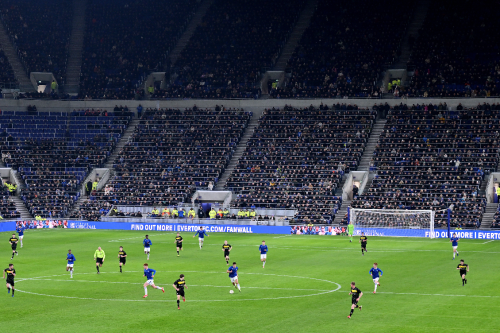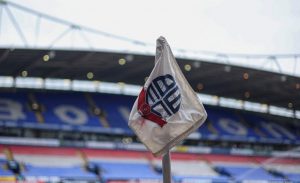Everton cuts annual losses, boosts revenue and contemplates stable future

Everton FC has today (March 31) released its annual accounts for the 2023/24 season which reveal a £14.7m increase in turnover to £186.9m, and a reduced pre-tax loss of £53.2m for the financial period, compared with an £89.1m pre-tax loss the previous season.
Although reduced, it is the seventh consecutive loss the club has posted, totalling £570m.
It also outlined progress to a stable future following the club’s takeover by the US-based Friedkin Group (TFG) last December, in a deal believed to be worth £400m.
The latest accounts show that Everton continued funding the development of its new £800m stadium at Bramley-Moore Dock, incurring capital costs of £312.7m, compared with £210.9m in the previous year.
Sponsorship, advertising, and merchandising revenue increased to £21.6m – a £2.4m uplift – driven by new and renewed partnerships with Ticketmaster, eToro, FIGS, and Kick.
Other commercial revenue totalled £17m, down £2.7m due to the absence of a mid-season international tour – unlike the 2022/23 trip to Australia during the Premier League World Cup break.
Broadcast revenue increased by £13.2m to £129.2m, reflecting higher merit-based prize money, live match facility fees, and international TV rights.
The wage-to-turnover ratio: Fell from 89% to 81%, taking into consideration outsourcing of retail and catering operations, demonstrating the club’s commitment to financial sustainability while maintaining a competitive squad.
A £48.5m profit was generated from player trading activities during the reporting period.
Gate receipts rose to £19.1m, an increase of £1.8m, with 19 home Premier League fixtures and additional domestic cup ties compared with the previous year.
The club incurred £10.4m of exceptional costs due to refinancing of debt facilities and costs associated with regulatory matters.
Net debt increased to £567.3m, reflecting investment in the squad, stadium development, and operational costs.
TFG owns 98.8% of the club after its takeover was approved in December 2024 by the regulatory authorities.
Earlier this month TFG revealed it had agreed long term financing for the new Bramley-Moore Dock stadium on Liverpool’s waterfront, due to open in August in time for the 2025-26 season.
The funding, totalling £350m, was from a consortium of blue-chip institutional lenders, refinancing borrowing that supported the completion of the 52,888-capacity Everton Stadium.
The offering was oversubscribed multiple times, ensuring competitive terms beneficial to Everton, the club said.
The financing is part of new owner The Friedkin Group’s commitment to strengthen and stabilise the club to provide the foundations for on-pitch success.
Additionally, the interest-free shareholder loan from Bluesky Capital has been converted into equity, significantly strengthening the club’s balance sheet.
Interim chief executive, Colin Chong, said: “Since the accounting period ended, the takeover process has resulted in a significant strengthening of our financial platform – something that is not reflected in these figures but has already made a major impact on our long term stability.
“Despite the challenges we have faced in recent years, and during the accounting period covered by these accounts, the hard work of everyone across the club – on and off the pitch – has ensured we have continued to move forward.
“That is particularly true of the progress on Everton Stadium, a project that was maintained at pace.”
He added: “The commitment to delivering our new home, while continuing to navigate a complex financial landscape, has been exceptional.
“With new ownership, a world-class stadium opening at the start of the 2025/26 season, and a clear plan for ongoing sustainability, we can approach the next chapter of our club’s future with confidence.”
Under the guidance of previous owner, British-Iranian businessman Farhad Moshiri, the club had stumbled from one disaster to another, both on the field and off.
It was hit with two separate points deductions, totalling eight points, arising from Profit and Sustainability Rules (PSR) breaches, and had narrowly staved off relegation in two successive seasons.








